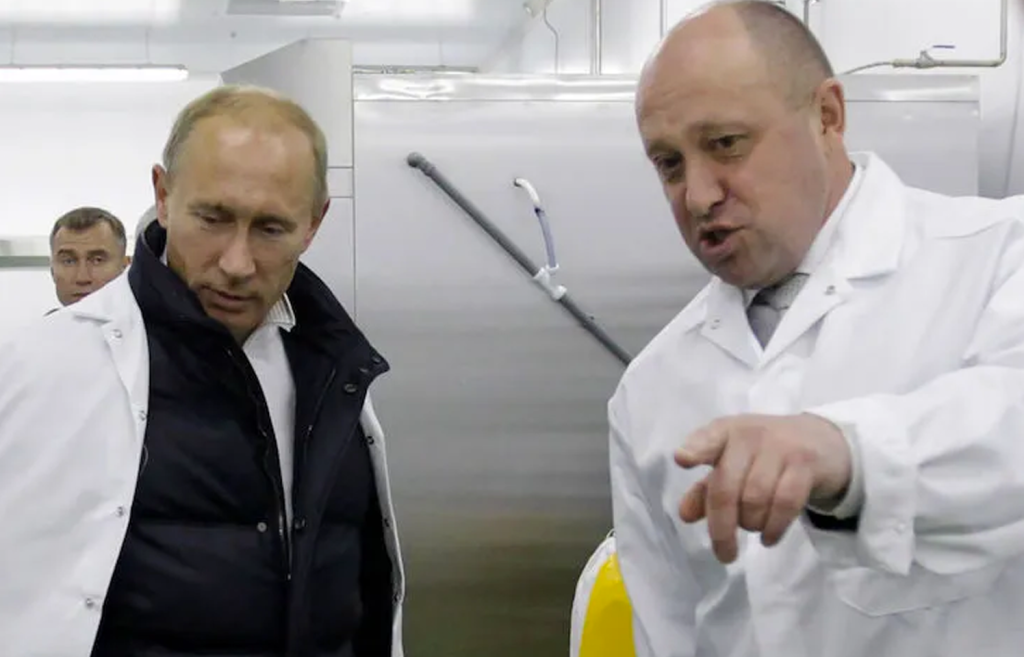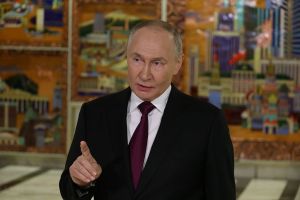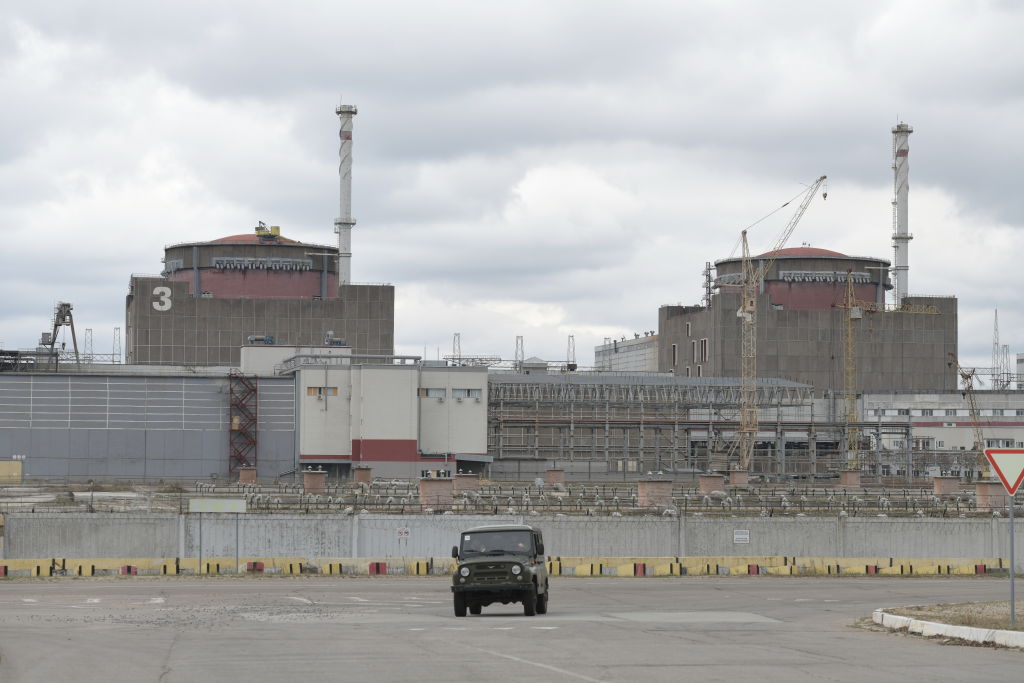As Wagner mercenaries are being deliberately expended by the regular military as cannon-fodder in the battle for Bakhmut, their backer, Yevgeny Prigozhin, is learning a hard lesson in Kremlin politics: it doesn’t matter how useful you were yesterday, what matters is how useful you may be tomorrow.
Last year, the Russians were desperately short of soldiers. Ukraine was fully mobilized, but Vladimir Putin was unwilling for political reasons to follow suit, only launching a partial mobilization in September. His generals simply lacked the soldiers they needed. In politics, as in economics, the laws of supply and demand meant that whoever had soldiers to offer — such as Prigozhin — could command a high price.
Of course, the real currency in Russia is not the ruble, but influence and impunity. Prigozhin took fullest advantage of this, both to try and expand his empire and to indulge some of his notorious vendettas.
Prigozhin pushed for more leeway in his business dealings in Africa, began attacking Alexander Beglov, governor of St. Petersburg (with whom he has been feuding since 2019) and, most strikingly, launched a campaign against defense minister Sergei Shoigu and chief of the general staff Valery Gerasimov. The first sign of these feuds were deniable digs through the nationalist “milblogger” community on social media, but things soon graduated to direct attacks: Shoigu and Gerasimov were accused of being incompetent, obstructive, even treasonous.
On the battlefield, Wagner would often regard itself as not under the regular military field commanders, undermining the overall war effort. This may have been because Prigozhin had hopes of becoming defense minister himself, but was also as much a personal feud. However, as mobilization generated another 300,000 army troops, the “market value” of Wagner began to decline. Prigozhin reacted by recruiting some 40,000 convicts from the Russian prison system, promising amnesties but in practice using them as human ammunition. This allowed Prigozhin to remain at the forefront of efforts to deliver to Putin a desperately-needed victory in Bakhmut and shield Wagner’s cadre of genuinely effective and professional veterans.
However, he had underestimated both Kyiv and Shoigu. Prigozhin had anticipated that Bakhmut would fall sooner, allowing him to claim the credit, but the Ukrainians hung on. He had also not appreciated that Shoigu, whose political career predates Putin’s, is a subtle but ruthless political operator who works best behind the scenes. In September 2022, he dismissed General Dmitry Bulgakov, deputy minister in charge of logistics, and widely seen as Prigozhin’s man in the ministry. This denied Wagner direct access to ammunition and weapons, making it more dependent on Shoigu. Then he persuaded the Kremlin to stop letting Prigozhin recruit in the labor camps. In January, General Surovikin — who had a good working relationship with Prigozhin — was demoted from the role of overall field commander, and replaced with Gerasimov.
Putin is happy to give the political entrepreneurs who swirl around his court a degree of autonomy if they promise results, but he will as easily discard them if they fail to deliver. For all his long relationship with Putin, Prigozhin is not a personal friend or close ally, and is disposable. It was telling that, in an apparent side-swipe at Prigozhin, Putin’s spokesman Dmitry Peskov noted that “sometimes our friends themselves behave in such a way that no enemies are needed.” Prigozhin is thus fighting for his political (and maybe even literal) life, but suddenly finds himself outmaneuvered.
Prigozhin cannot give up on Bakhmut, so the regular army is using it to bleed Wagner dry, sending them into the worst fighting in the ruined AZOM metal works, while ready to swoop in and claim the victory as and when it falls. He has also had to acknowledge the degree to which he is dependent on Shoigu: his vituperative complaints about Wagner not receiving the ammunition it needs are effectively admissions of weakness.
Perhaps half of Wagner’s convict-mercenaries are already out of action, forcing him to use his better troops. And he needs more soldiers; without them, he has nothing to offer. Wagner is now opening up recruitment centers in forty-two cities across the country. This is in direct competition with the military, though, and growing coverage at home of the high losses and poor conditions experienced by Wagner soldiers are unlikely to help recruitment.
The decline of Prigozhin is thus not simply a case study in bare-knuckled politics. It also suggests that, whatever other problems are besetting the Russian military — from a difficulty adapting to the realities of the battlefield, to a growing reliance on rusting Soviet-era kit — manpower is seen as less pressing a problem. Prigozhin may need to find some new way to be useful to the Kremlin — and fast.
This article was originally published on The Spectator’s UK website.

























